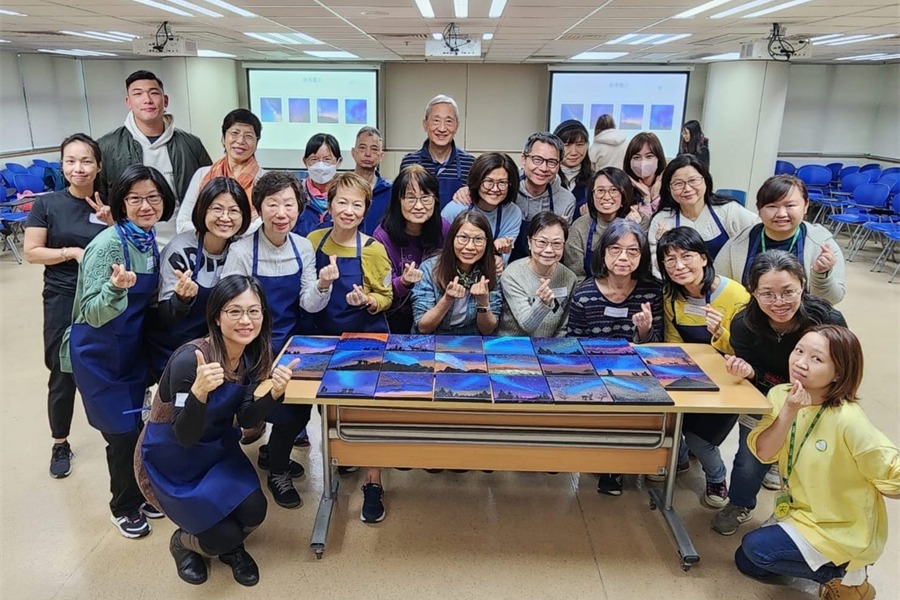As demand grows, green consumption glows
By Zheng Yiran | China Daily | Updated: 2022-10-06 08:34

On July 8, the Shanghai municipal government issued a guideline on promoting the development of the low-carbon industry. According to the guideline, by 2025, the city's low-carbon industry will surpass 500 billion yuan in annual sales revenue, and Shanghai will form a development pattern comprising two 100 billion yuan industrial clusters, five 10 billion yuan clusters and dozens of 1 billion yuan clusters.
Elsewhere, the National Development and Reform Commission, the Ministry of Industry and Information Technology and the Ministry of Commerce jointly launched an action plan to promote green consumption. The action plan instructed that by 2025, the green consumption concept should win popular support, and the market share of green consumer goods should surge. By 2030, green consumption should be the public's natural choice, and green products should become the mainstream in the market, the action plan stated.
Chang Tiewei, deputy director of the Department of Employment, Income Distribution and Consumption at the NDRC, said: "The green consumption concept has been gradually popularized in recent years. However, wasteful and unreasonable consumption phenomena still exist in some sectors, and green consumption demand needs to be stimulated and released."
The action plan suggested the building of a resource-saving society that avoids luxury consumption and excessive consumption. The government should expand green, low-carbon product supply, improve the institutional system, promote the structural transformation of green consumption, and accelerate the formation of a moderate, low-carbon and healthy consumption mode.
A report on green consumption released by China's e-commerce platform JD showed that in 2021, 93 percent of the surveyed consumers paid attention to a healthy lifestyle, among which the number of consumers born in or after 1990 surged by 134 percent year-on-year.
"Sustainability has become a new communication context between consumers and society," said the report.
Chen Jia, an independent researcher in international strategy, said: "Boosting green consumption is the route the country must take to implement green economic development strategies. Low-carbon, green consumption is also an inevitable trend for global consumption transformation. Against a backdrop of China's consumption upgrade, enterprises should explore new business growth points."
Some companies are already grasping such business opportunities brought by green consumption. For instance, JD launched a green consumption festival in May, promoting green, organic foods, including organic milk, plant-based food and vegetable-based diet.
In August, it hosted an environmental protection-themed art exhibition called "Make Sustainability Visible". The exhibition attracted a lot of visitors and raised people's awareness of green consumption.
In terms of packaging, beverage brands such as Master Kong, Coca-Cola and Nestle all launched bottles without plastic labels. Shanghai-based Bright Dairy & Food Co has set every 5th, 15th and 25th of a month as the "milk carton recycling days". During the recycling days, residents only need to collect 10 milk cartons from any brand and of any size, and exchange them for free products from the company, including edible oil, and agricultural and miscellaneous products. Coffee brands such as Starbucks, Manner, Pacific Coffee, Tim Hortons and McDonald's are offering discounts when consumers bring their own coffee cups.
On the production side, numerous consumer brands are actively exploring "carbon-neutral factories" and a low-carbon, sustainable business model. South Korean confectioner Orion Food Co Ltd has established a global carbon emission management system. The distributed photovoltaic power generation equipment at Orion factories in Guangzhou, Guangdong province, and Shanghai were put into operation this year. Domestic companies, such as sugar-free sparkling drink brand Yuanqi Senlin and dairy giant Yili Group, have also built renewable energy-powered carbon-neutral factories.
Liu Hui, associate professor at the University of Chinese Academy of Social Sciences, said: "Embracing green consumption is an upgrade and transformation for consumer brands. The Asia-Pacific region is one of the regions with the highest food waste in the world, accounting for over half of the global food waste. Therefore, low-carbon, green consumption that reduces waste contains a pot of gold."
Researcher Chen said: "Enterprises should actively adjust their products and services, to better suit the online consumption trend and the environmental protection concept. On the one hand, they should reduce costs and increase efficiency, and raise their own competitiveness to withstand risks; on the other hand, based on consumer demand, they should accelerate innovation, using new products and new services to deal with opportunities and challenges brought by the consumption transformation.
"As a whole, the green consumption sector is highly innovative and adaptive, and contains strong 'Created in China' characteristics. The future is quite promising."
He Jingwei contributed to this story.
























